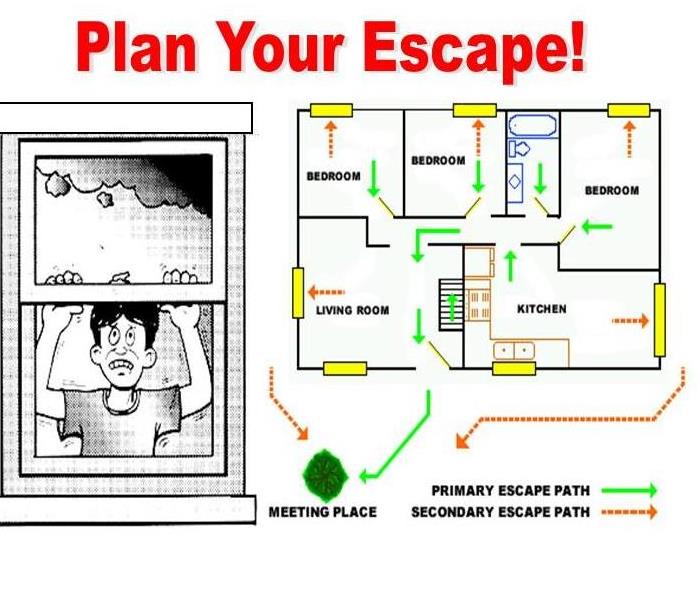Household Escape Planning
4/5/2019 (Permalink)
Plan Ahead!
If a fire breaks out in your home you may have only a few minutes to get out safely once the smoke alarm sounds. Everyone needs to know what to do and where to go if there is a fire.
SAFETY TIPS
1. Make a Home escape plan. Draw a map of your home showing all doors and windows. Discuss the plan with everyone in your home.
2. No at least two ways out of every room, if possible. Make sure all doors and windows leading outside open easily.
3. Have an outside meeting place like a tree, light pole, or mailbox. Make sure it is a safe distance from the home where everyone should meet.
4. Practice your home fire drill at night and during the day with everyone in your home at least twice a year.
5. Practice using different ways out.
6. Teach children how to escape on their own in case you can’t help them.
7. Close doors behind you as you leave.
IF THE ALARM SOUNDS...
1. If the smoke alarm sounds get out and stay out! Never go back inside for people or pets.
2. If you have to escape through spoke, get low and go under the smoke to your way out.
3. Call the fire department from outside your home.
FACTS
! A closed door may show with the spread of smoke, heat and fire. Install smoke alarms inside every sleeping room and outside each sleeps area. Install alarms on every level of the home. Smoke alarms should be interconnected. When one smoke alarm sounds, they all sound.
! According to an NFPA survey, Only one of three American households have actually developed and practiced a home fire escape plan.
! While 71% of Americans have an escape plan in case of a fire, only 47% of those have practiced it.
! 1/3 of American households call made an estimate thought they would have at least six minutes before a fire in their own home would become life-threatening. The time available is often less. And only 8% set their first thought on hearing a smoke alarm would be to get out.





 24/7 Emergency Service
24/7 Emergency Service
